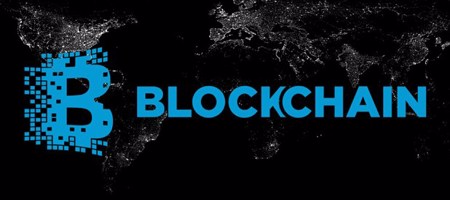Facebook’s Libra, TLDR.

Facebook’s Libra, TLDR.
Date: 20 Jun 2019
Abstract
I woke up this morning and walked into the kitchen to make a coffee. In the background I hear chatter, my 7 year old and my 65 year old father having a discussion. “One currency to be used everywhere in the world” “I can send money to anyone, anywhere without a bank” “the banks are going to die because who needs them digital money is better anyway”.
I thought I was dreaming, but as it turns out I wasn’t, they were discussing the Facebook coin, I look up and laugh, they sound exactly like me back in 2012.
Overview:
Facebook has finally released the Libra Whitepaper. It has been long anticipated and finally we have some clarity around what the plan really is. Libra in essence will be a stablecoin, or to simplify it to no-coiners, a digital currency backed by a basket of currencies to ensure a stable value relative to the money we currently use.
By 2020 people will be able to send, receive and pay using the Facebook app, just like WeChat did in China many years ago and disrupted the banking system. Anyone who has lived in China knows that nobody uses bank cards, they just use an app. Libra will be the global equivalent.
What we are witnessing is the creation of a new financial ecosystem that will provide a single global currency that will be accepted by anyone using facebook (2.4 billion people). Said currency will be backed by deposits and treasuries in trusted central banks.
Under the hood:
While this stablecoin will be the first asset on this new protocol, it does not stop there. As mentioned in the technical paper the protocol is a database for programmable resources.This wording indicates that they intend to do more than just a stablecoin. Eventually we will see other digital assets being created by developers and launched through this protocol.
They have also introduced a new language to run smart contracts, the language is MOVE. Now this could be beneficial or could just be a power play, I mean google has GoLang why shouldn't Facebook have their own? My concern as a recruiter for the industry is, how easy would it be for developers to shift to this new language and skill up. Besides of course any natural concerns with a new programming language and its flaws.
It is interesting to note that Libra blockchain is not actually a blockchain as transactions are not bundled into blocks, since a blockchain is a simply a chain of blocks, I do not understand why they keep referring to it as a blockchain. In saying that it is distributed ledger technology and they will be using a single Merkle tree to authenticate the ledger’s data structure, I guess that is what makes them feel it is a blockchain. They will also have to figure out a rent based system to use resources and that in itself could start a whole new overvalued rent issue but I guess we could overcome that with enough users setting up dedicated resources. Unlike current systems Facebook will have access to 2.4 billion people creating a different playing field.
Governance
Currently governance of this protocol will be done through the federation, the node owner, currently these are major corporations who have paid $10,000,000 USD for a node, with an estimated running cost of $280,000 USD per year. This does go against the whole principal of decentralization but hey this coin is not intended to be decentralized the aim is to replace the legacy banking system with the tech giants of the world. While this current model is essentially permissioned Proof of Work protocol they do mention that over time membership eligibility would become more open based on ones holdings thus shifting towards permissioless Proof of Stake. Hopefully Facebook has a scalability solution for POS in stealth to facilitate this.
I am very intrigued by the move to permissionless from permissioned and personally I see genius in this; as people use the system and gain an understanding it does make sense that they can claim membership and let Libra be permissionless as there would be enough validators to regulate.
Consensus Mechanism:
Consensus mechanism is always a big thing, with Libra they will use the a Byzantine Fault Tolerant Consensus. This prevents attacks as most votes are to be controlled by Byzantine validators whom will inherently be honest. It will distribute votes amongst validators in a set of 3f+1 votes where most f votes are controlled by Byzantine validators, this will allow for 33% of votes to be dishonest and not affect the system. Some additional modifications are well thought: A pacemaker to emit explicit timeouts which will improve efficiency, unpredictable leader election will limit attacks on leaders and aggregate signatures will be used to preserve validator identity while voting.
Transaction Speed
The million dollar question, or shall we call it billion. Transaction speed, they Libra claims that initially they will support 1000 transactions per second with 10 seconds in between batches, considering there are 100 nodes that sounds reasonable. The nodes will have a minimum requirement of 40Mbps connection, 1 commodity CPU and 16 TB SSD.
Privacy:
Now for the ultimate surprise; “The Libra protocol does not link accounts to a real-world identity”. This makes me wonder how receptive the governments of the world would be to this we all know privacy isn't something they like, neither does Facebook considering their history with user data. This also makes one wonder about KYC/AML and how all that will function.
Conclusion:
In conclusion, I feel this is an excellent system that will expose the world to the power of crypto and will really disrupt the banks. Libra is reshaping the payments industry, creating new financial offerings while giving greater freedom of money and reducing capital restrictions globally through the dedollarization of the world.
Libra is a real threat, you want proof? The government is already trying to shut this down. They are scared and they should be as the famous quote goes “give me a country's money supply and I do not care who controls the military” Question is do we trust Facebook to be the world's superpower?
Libra will bank the unbanked and will bring the mainstream to the industry and open their eyes to the true potential of crypto. It maybe the anarchist inside me but if this system was decentralized the government could not even try to stop it, with well known reputable validators running the system they can. We cannot beat the banks and governments but Facebook can. Once they win that battle it will be much easier to show the mainstream the benefits of a decentralized version of Libra and we can finally transcend to decentralized crypto utopia.
 Share to LinkedIn
Share to LinkedIn Share to Twitter
Share to Twitter Share to Facebook
Share to Facebook Back to news
Back to news




